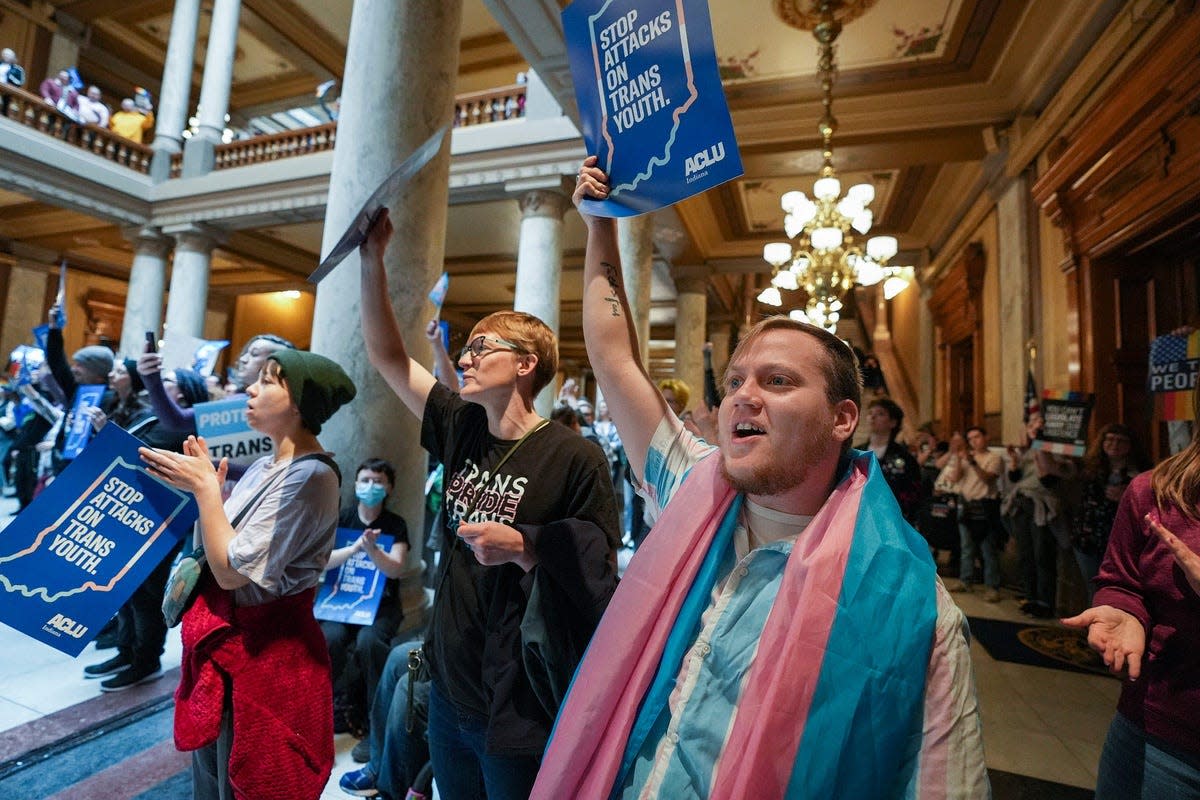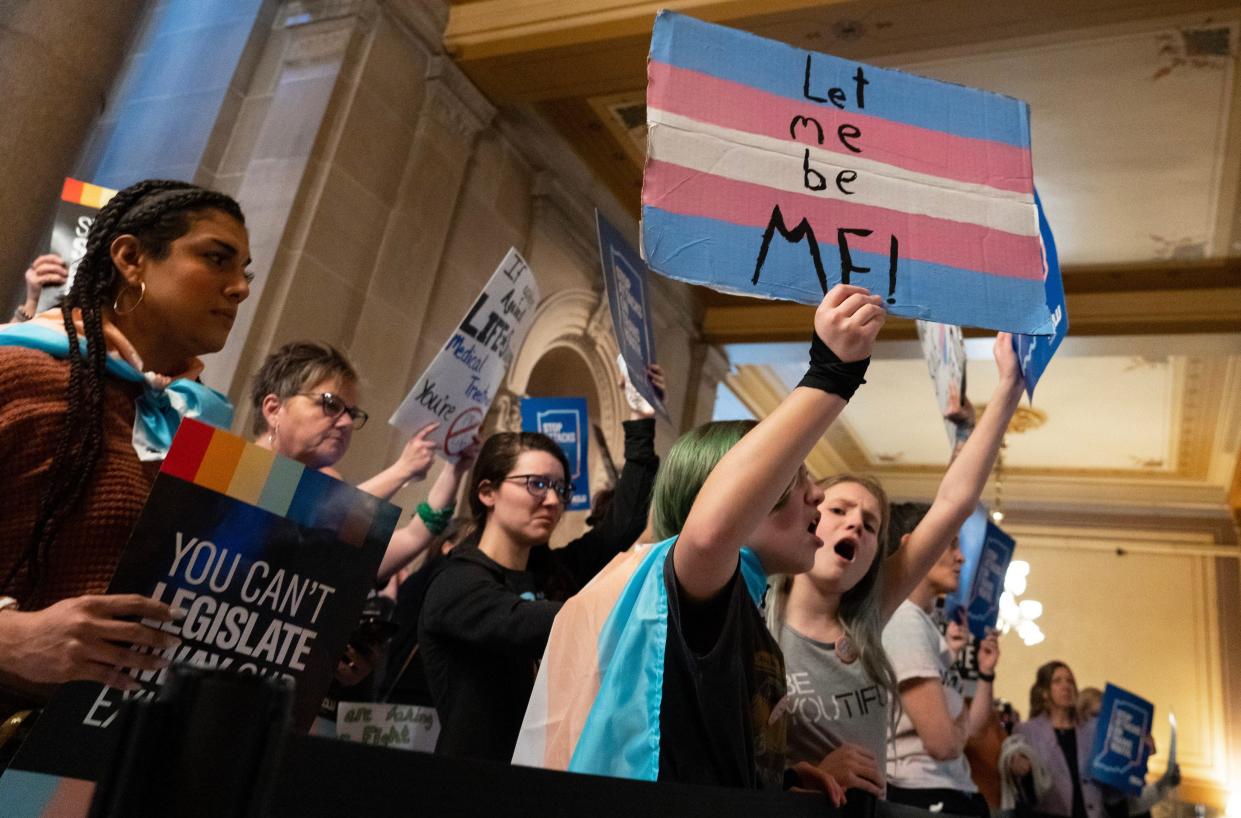Supreme Court rejects appeal from parents who lost custody of trans teen
WASHINGTON − The Supreme Court declined to decide Monday whether an Indiana couple who believe children should be raised based on their sex at birth should have lost custody of their teenager, a transgender girl.
The court, without comment, rejected an appeal from the teen’s parents, who had warned that cases similar to theirs are likely to reoccur “due to developing conflicts between parents and their children concerning gender identity.”
“With increasing frequency, governments run roughshod over parents’ religious beliefs on gender identity, including removing children from parents, favoring certain beliefs in divorce custody disputes, and preventing adoptions,” lawyers for Mary and Jeremy Cox of Anderson, Indiana, told the court in their appeal. “These cases are sure to proliferate.”
The state said the parents, who are self-described devout Christians, lost custody not because of their views but because of the medical necessity of addressing the teen’s severe eating disorder.

A provision of Indiana law that is similar to statutes in nearly every state allows government intervention in “a variety of situations in which even well-intentioned parent find themselves unable to prevent serious harm,” the state told the court.
Indiana also argued that the custody dispute is no longer relevant because the teen, who was 16 when removed from the home, is now an adult.
In a statement following the Supreme Court's denial, Mary and Jeremy Cox referred to their child as "our son" and said losing custody of the teen "because of their beliefs will stay with us forever."
"We can't change the past, but we will continue to fight for a future where parents of faith can raise their children without fear of state officials knocking on their doors," the Coxes said.
Indiana Attorney General Todd Rokita, whose office is tasked with defending state agencies, said he is "sympathetic" to the Coxes, citing his work in defending parental rights.
"We always protect parental rights and religious liberty. Neither we nor the Indiana courts believe that the State can remove a child because of a parent's religious beliefs, views about gender identity, or anything of the sort," Rokita said in a statement, adding that the record shows the state's actions were motivated by the teen's "extreme eating disorder."

Mary and Jeremy Cox, self-described devout Christians, lost custody of their trans teen
The case began in 2021 after the Indiana Department of Child Services received two reports of abuse or neglect, both related to the teen’s transgender identity. One accused the parents of verbally and emotionally abusing their child because they did not accept that the teen was transgender, according to court records.
After hearings, a judge ordered the teen be removed from the parents’ custody, get treated for the eating disorder and participate in individual and family therapy. The state dropped allegations of parental abuse or neglect but argued the teen’s eating disorder might worsen if the parents regained custody.
The parents were told not to discuss transgenderism with their child outside of the therapy sessions because of the connection between those conversations and the eating disorder.
The Coxes, who are identified in the court filings by their initials, said the state violated their parental rights, their free speech and their free exercise of religion.
“M.C. and J.C. seek only to raise their children according to their religious beliefs and best judgment,” they told the court. “This case is about the state taking a child from fit parents.”
The Indiana Court of Appeals sided with the state, and the Indiana Supreme Court declined to review the case.
"The Parents have the right to exercise their religious beliefs,” the appeals court said, “but they do not have the right to exercise them in a manner that causes physical or emotional harm to Child.”
This article originally appeared on USA TODAY: Supreme Court rejects appeal from parents of trans teen
